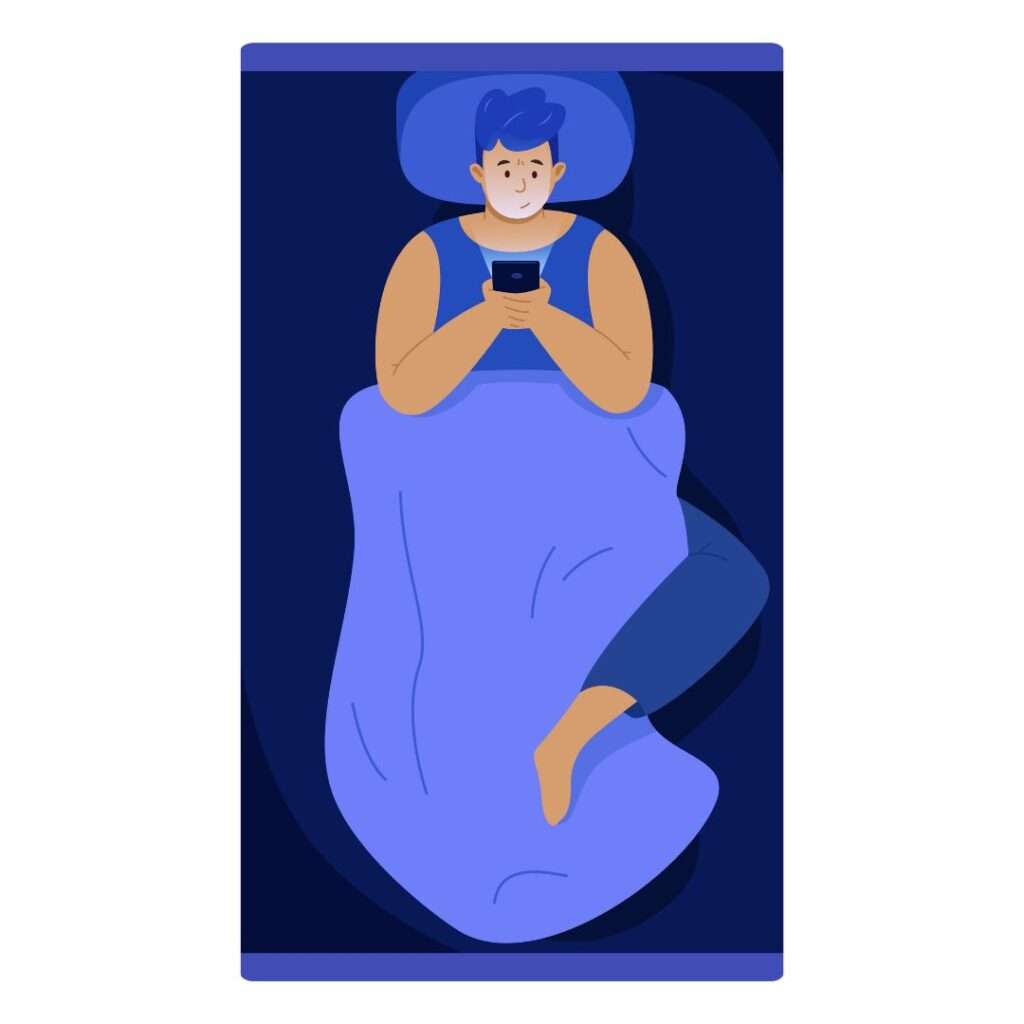If you are here, you are probably a worried parent whose teen yawns through the day like it’s nobody’s business.
No matter how vehemently your kid denies it, you know that they stay up late at night texting their friends or watching shows. You know this because waking them up for school every morning feels like a Herculean task. They saunter their way into the bathroom, to school and back home only to jump back onto bed as soon as they get a chance.
If this was relatable, then that’s a serious sign of your teen sleeping poorly. In our last post, we discussed why sleep is fundamental to leading a good life. Especially for a growing teenager, sleep is critical for healthy brain and body development.

Today, we’ll talk about 5 evidence-based ways through which you can help your teen sleep better. A lot of these tips (though not all) are sourced from the Huberman Lab (this episode on sleep is a must-listen in our opinion).
Okay here we go, 5 tips to help your teen sleep better:
1. Get Morning Sunlight
Encourage your teen to view morning sunlight for at least 15-30 minutes as soon as they wake up. Sunlight is what kicks our body into wake-up mode. When the body registers sunlight, it triggers a whole set of actions that makes us work-ready. An example is cortisol (a hormone) regulation to help increase focus and alertness.
Remember to get direct exposure to sunlight (i.e., not view it behind a window or shades). An early morning walk or run is one way of making this a regular habit. Please also take care to see that your teen does not look at the sun directly as this can damage their eyes.
2. Get Evening sunlight
If morning sunlight helps your teen’s brain wake up, evening sunlight helps it wind down. A gradual winding down process greatly aids good quality sleep.
Taking a walk with your teen outside the apartment around sunset or spending some time on the balcony could be ways to ensure that your teen (and you) get a healthy daily dose of evening sunlight.
3. Prepare to sleep early
This one is tough, I know but an early bedtime is critical for good sleep.
Our brain is wired to rest at night after the sun goes down. If your teen’s brain does not rest at night, their mornings will suffer for it (you may have seen this happen many times).
Encourage your teen to get into bed early, put away their screens (more on this coming up) to increase their chances of falling asleep at an earthly hour. Trust me, this will make a big difference for sleep quality.
4. Sleep in a dark room
Any kind of light, yes even that 4W bulb that you leave on in the bathroom can disrupt your teen’s sleep. Before electricity, the only kind of light available was natural light, the availability of which meant that it was time to get up and work. The human brain is still very much adjusted to that setting. We sleep better in complete darkness.
If your teen is afraid of the dark and insists on having some light in the bedroom, consider getting a floor lamp. Lights that are below the eye level are lesser of the 2 evils when it comes to sleeping with lights on.
5. Avoid screens before bed
Eliminating use of technological devices at least 2h before bedtime will help your teen fall asleep faster.
There are 2 main reasons to consider limiting your teen’s screen time use before bed. Firstly, the blue light emitting from these devices can make it difficult for your teen to fall asleep. On top of this, if they are on social media while trying to drift off to sleep, their brain is likely in an overstimulated space which will delay their sleep even more.
If your teen is nodding off with their phone in their hand or TV noise in their room, this can also lead to them waking frequently between sleep cycles which is not good.
A Word from Kazivu
Sleep is fundamental to health and development. Especially during teenage years, the role of good quality sleep in leading a quality life cannot be overstated.
Talking to your teen about their poor sleep habits can be difficult because it is a topic that teens show much resistance to. This is understandable. But that does not mean that the attempt is not worthwhile.
Modelling what good sleep habits can look like by incorporating these tips into your own lifestyle might serve as a great example for your teen to emulate and make these conversations easier for you to have with them.
